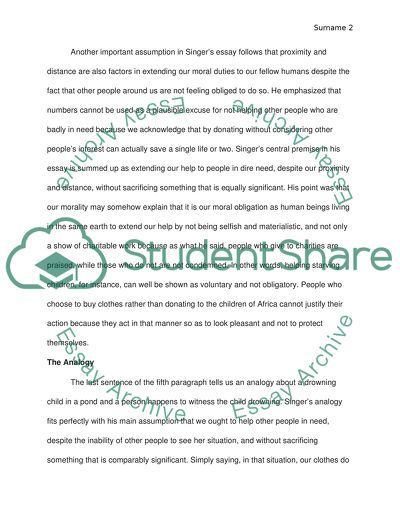Cite this document
(“Analogy, Marginality and Action. Peter Singers Famine, Affluence, and Essay”, n.d.)
Analogy, Marginality and Action. Peter Singers Famine, Affluence, and Essay. Retrieved from https://studentshare.org/philosophy/1464375-analogy-marginality-and-action-peter-singers-famine-affluence-and-morality-analysis
Analogy, Marginality and Action. Peter Singers Famine, Affluence, and Essay. Retrieved from https://studentshare.org/philosophy/1464375-analogy-marginality-and-action-peter-singers-famine-affluence-and-morality-analysis
(Analogy, Marginality and Action. Peter Singers Famine, Affluence, and Essay)
Analogy, Marginality and Action. Peter Singers Famine, Affluence, and Essay. https://studentshare.org/philosophy/1464375-analogy-marginality-and-action-peter-singers-famine-affluence-and-morality-analysis.
Analogy, Marginality and Action. Peter Singers Famine, Affluence, and Essay. https://studentshare.org/philosophy/1464375-analogy-marginality-and-action-peter-singers-famine-affluence-and-morality-analysis.
“Analogy, Marginality and Action. Peter Singers Famine, Affluence, and Essay”, n.d. https://studentshare.org/philosophy/1464375-analogy-marginality-and-action-peter-singers-famine-affluence-and-morality-analysis.


